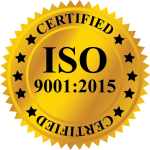Working in teams with colleagues from different disciplines and fellow nurses requires effective communication skills. Additionally, it’s critical to patient-centered care. Better patient outcomes come from nurses who take the time to listen to and comprehend each patient’s concerns. This is because they are better equipped to handle problems as they emerge. On the other hand, patients who experience poor or nonexistent communication in the healthcare system may misunderstand instructions and ignore treatment recommendations. According to a Joint Commission report, 80% of major medical errors were caused by inadequate communication in the healthcare system during patient transfers.
Furthermore, patients are more likely to reveal the full scope of their symptoms to a nurse or other healthcare professional after they have developed a safe and open communication channel.
For nurses to provide quality care, they must approach each patient interaction to comprehend the patient’s worries, experiences, and viewpoints. This requires applying both verbal and nonverbal communication techniques, as well as patient teach-back methods and active listening. Ten essential communication skills for nurses are discussed below.

- Communication through speech
The key is effective verbal communication. Always try to communicate intelligibly, accurately, and honestly. It’s crucial to understand your audience and tailor your speech to their age, culture, and degree of health literacy. Be mindful of the tone you use when speaking with patients and try not to let tension or frustration show through. One may:
- Pose open-ended enquiries to patients, such as “Can you tell me a bit more about that?” to encourage them to communicate.
- Use the patient’s first name or preferred name instead of using patronising pet names like “honey” or “sweetie.”
- Steer clear of technical jargon and speak in clear, complete sentences.
- Pay attention
Paying close attention to what your patients and their families are saying is one of the best things you can do as a nurse. Your body language, including your words, gestures, and facial expressions, can convey empathy and support. To demonstrate that you are paying attention and comprehending what they are saying, you can also give them nonverbal cues.
Pay close attention when patients speak and make an effort to answer compassionately. You can establish a stronger rapport with patients and give them confidence in you by listening to them with kindness and respect. By encouraging them to continue sharing with you, you might be able to better meet their needs and take care of their concerns.
- Keep an eye out
A crucial part of nursing is keeping track of a patient’s behavioural or physical changes. Patients may divulge more details when simple, accurate observations are made. If you notice minor changes in a patient’s appearance or mood, politely comment on them and perhaps explain the changes. It might be necessary for you to document your observations so that other medical professionals can use them as a basis for developing the best course of action.
- Nonverbal Communication
Building rapport also requires using nonverbal cues like posture, tone of voice, body language, eye contact, facial expressions, and gestures. Smiling is a powerful tool. Additionally, you can:
By keeping eye contact and nodding your head, you can demonstrate that you are interested in what the patient is saying. Grin but avoid staring. When you can, take a seat and lean forward to demonstrate your engagement. Make sure your body language is open and non-threatening.
- Written Communication
Effective communication between nurses also requires the ability to communicate in writing. It will be your duty as a nurse to create and maintain the patient’s medical record. For your patients to get the best care possible, the medical record must be up-to-date and accurate. Don’t forget to maintain patient confidentiality.
- After providing patient care, take notes right away to ensure you remember everything.
- Use basic language and write legibly and clearly.
- Make sure to record precise times and dates.
- Presentation Techniques
The best times to use effective presentation techniques are during “handover,” or when you are passing over patient care to another nurse or other medical professional. These abilities will also enable you to effectively convey your knowledge and experience in a range of professional contexts, including conference presentations, job interviews, case reports to doctors, and more. It is advisable to:
- Make a practice and presentation plan.
- Be mindful of the way you communicate verbally and with your body.
- To improve the explanation in your presentation, include images.
- Recognise the needs and desires of your audience and cater your presentation accordingly.
- Trust
Active listening and treating each patient’s complaint and concern with seriousness are keyways that healthcare providers can foster trust in their patients. It takes time to establish trust. For certain patients, hospitals can be frightening places. It’s critical to give them the greatest level of comfort.
Building trust is something that leaders and nurse educators should do as well as work to develop the next generation of nurses. To foster trust, educators and nurse leaders should:
- Always tell the truth.
- Openly exchange information.
- Be prepared to own up to your errors.
- Keep quiet.
One of the best ways for nurses to communicate is to remain silent. You and your patient can process information, formulate follow-up questions, and gain the confidence to discuss certain subjects in silence. Think about letting the patient speak initially. Allow patients enough time to absorb information, take in their surroundings, and express their feelings.
- Knowledge of Culture
You will probably collaborate with individuals from diverse social, cultural, and educational backgrounds daily. Since each patient and coworker is different, it’s critical to exercise awareness and empathy. Determine the patient’s level of English proficiency, for instance, and adjust your vocabulary or, if required and practical, use a translator. Make sure to refer to transgender and gender nonbinary patients by their preferred name and pronoun.
- Compassion
In the healthcare industry, the ability to communicate compassion is crucial. Studies “show that compassion can assist in prompting fast recovery from acute illness, enhancing the management of chronic illness, and relieving anxiety,” according to the Journal of Compassionate Healthcare. Understanding the patient’s needs and expectations by placing yourself in their position will help you provide compassionate nursing care.
Conclusion – Effective communication is the cornerstone of nursing practice, impacting every aspect of patient care and team collaboration. Inadequate communication can result in serious medical errors, highlighting the need for continuous improvement in this area. As nurses embrace these communication strategies, they not only improve the quality of care but also contribute to a more cohesive and efficient healthcare system. By prioritizing communication, nurses can ensure they meet the holistic needs of their patients, ultimately advancing the nursing profession and the well-being of those they serve.










